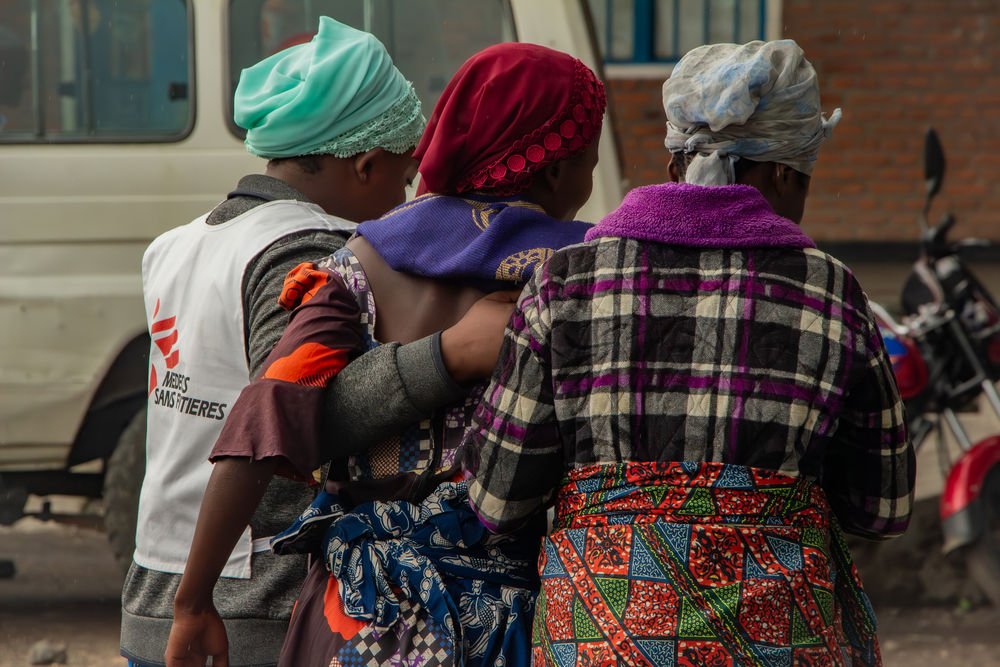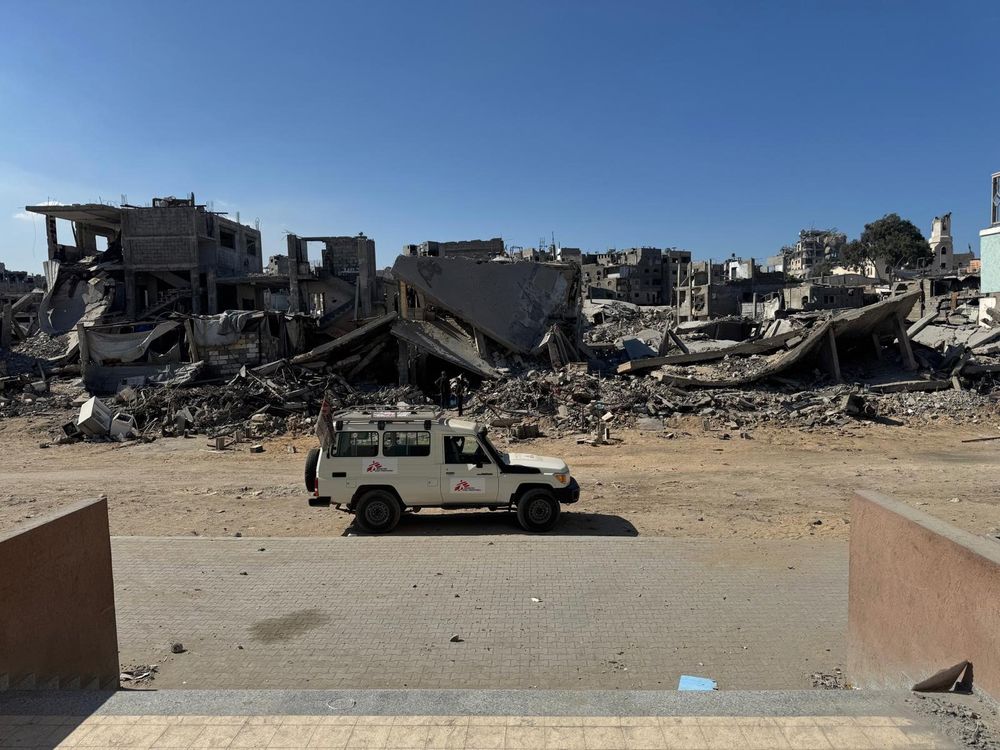On the occasion of [insert official name of the Global Women’s Summit], Médecins Sans Frontières (MSF) calls for committed, concerted, and elevated action on elimination all forms of violence against women and girls. This includes genocide.
MSF acknowledges that since the 1995 World Conference on Women and the Beijing Platform for Action, political commitment and public awareness of the need for improved protection and healthcare access tailored to the specific risks women and girls face, has grown dramatically. For 30 years this has driven learning and improvement within MSF’s global medical relief projects too. However, the global context for women’s rights to life and dignity has drastically changed. Progress over 30 years is challenged anew by ongoing, atrocious violence, often with clearly gendered characteristics, and by emerging politics that denies access to gender-specific healthcare - whether in Afghanistan where women are excluded from studying in medical institutions, or cancelling international funding for sexual and reproductive care in Somalia.
Any discussion on improving protection and access to healthcare of women in crisis loses meaning when, for women and girls in many places around the world, even the right to life is denied.
In Gaza, MSF witnesses the impacts of the Israeli military’s genocidal war where manufactured starvation is now a feature of what remains of life after two years of relentless bombardment and recent ground operations. The indiscriminate nature of Israeli forces’ attack meant that nowhere is safe and nobody is protected. Gaza’s healthcare system has been systematically obliterated – only 14 of its 36 hospitals remain partially functional.
Despite Israeli denials, MSF’s own medical data from six supported hospitals and six clinics, and that of other organisations too, as well as the testimonies of our patients and our staff, indicated an ongoing genocide. No one – women and girls included – is spared.
Medical data from MSF-supported facilities (January - December 2024) indicated that among the 207,942 general outpatient consultations, wound care alone accounted for 93,254, with 32% being for women and 29.7% for children younger than 15 years – 9,179 for children younger than 5 years.
Malnutrition screenings across MSF facilities during May found 25% pregnant or breastfeeding women and children aged 6 months to 5 years old were malnourished. Consequently, MSF teams have seen a marked increase in complications during pregnancy and pre-term deliveries from pregnant mothers severely underweight, severely anaemic. The main health risks for pregnant women – blood-pressure related complications such as eclampsia, hemorrhage and sepsis – are deadly if not detected and treated swiftly. The repeated forced displacement during Israeli evacuation orders and the creation of “red zone” no-go areas, worsened vulnerabilities pregnant women faced in utterly abject conditions where water supply and food distribution had been weaponized by Israel’s military. Without access to a hospital, it could cost them their baby—or their life.
These women lived in terror. They know that no ambulance will come to the red zone to pick them up so they can deliver safely. There’s no way for them to reach a hospital that still performs C-sections since so few are functional.
While we welcome the ceasefire, it does not mark the end of this horrendous suffering — people in Gaza are left to survive amid the ruins of what was once their home, facing immense medical, psychological, and material needs.
The genocidal violence in Gaza is a reflection of patterns of gendered violence MSF has witnessed elsewhere, like in the Democratic Republic of Congo and Sudan where sexual violence is used as a weapon of war.
In 2023, MSF teams in DRC treated two victims or survivors of sexual violence every hour – a total of over 25,000 people across five provinces during the year. Alarmingly, this trend increased in 2024; in displacement sites around Goma, in eastern DRC, over the first five months, we treated almost 17,500 patients. And even now, in September 2025, many patients report ongoing violent rapes, kidnappings and murders both at night and in broad daylight as high insecurity continues.
Sudan’s civil war has become a war on people, particularly women. Between July and December 2023, MSF teams treated 135 survivors of sexual violence at a refugee camp in neighboring Chad. In 90% of cases, perpetrators were armed men and in 40% of cases multiple attackers were involved. In Sudan’s South Darfur region, the brutal violence against women and girls is obscured by the silence of stigma and dearth of services available in displacement camps under siege or refugee camps in neighbouring Chad. MSF medical teams provided care to 659 survivors of sexual violence between January 2024 and March 2025 – a third of them younger than 18. At Tawila hospital, the number of patients surged from nine in January to March to 339 in July and August in the wake of sustained attacks by the Rapid Support Forces around El Fasher.
Women and girls tell our medical teams they do not feel safe anywhere. They are attacked in their own homes, when fleeing violence, getting food, collecting firewood, working in the fields. They tell us they feel trapped. The violence women are subjected to is linked to both the active conflicts and structural inequalities that put women at greater risk.
As an independent and impartial medical humanitarian organisation, MSF can and must provide assistance based solely on the severity patients’ medical needs while observing neutrality during armed conflicts. MSF remains duty-bound to raise public awareness about the impact of violence on the people who are our patients, and to speak out or denounce, as a last resort when mass violations of human rights occur, including forced displacement of populations, forced return of refugees, genocide, crimes against humanity and war crimes.
We know that the threats faced by women and girls in crisis situations are different and often more serious. Their subsequent health and protection needs require special attention and more immediate action.
That action has certainly grown since the 1995 World Conference on Women and the Beijing Platform for Action. But the world now is changed. Today 110 active armed conflicts rage around the world, forcing 122 million people from their homes and into danger. The challenges to progress remain stark and they cannot be ignored.
MSF calls on states, organisations, networks, and individuals to stop any forms of violence, including genocide, against women and girls now. At the very least States must ensure their forces adhere to International Humanitarian Law, to distinguish between legitimate military targets, civilians and protected objects like water systems and hospitals. But they should go further. We urge immediate consideration of the legal and humanitarian impact of targeted persecution and call for enhanced support for the protection and addressing the specific health needs of affected women and girls in Gaza, DRC, Sudan and around the world. If not, that failure will only lead to more brutality, suffering and death.



